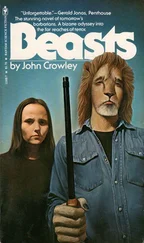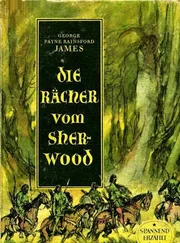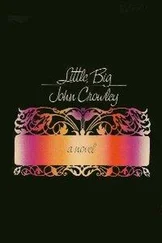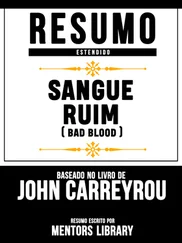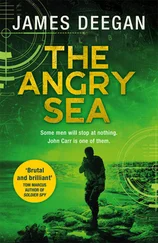Not long after that, on the day Lucinda helped her wash, her mother collapsed in the river. Bowing under a pregnant noon sun, the left side of her body went dead and she stumbled into rough water. Her mouth was half speaking, her eyes half blind, and her body half asleep. Lucinda watched as river currents ran over her mother and she drowned. Despite having use of only half her body, the woman might have saved herself were it not for Lucinda, whose pinning foot never left her mother’s head until water forced its way into her lungs and killed her in jerks. There was to be no funeral. The night welcomed Lucinda back. In a bonfire she threw lizard skins, cat skeletons, and a dog’s paw that her mother had saved in vinegar. Mary and Mr. Greenfield were married the next day.
Lucinda, having resigned herself to never again experience the misery of a man, took over Sunday school. Mary Greenfield would never have children and her marriage died long before her husband did, killed by stillbirths, mistrust, and jealousy.

Both women now found themselves compelled by men they barely understood. The wind nudged the Widow from her sleep and blew toward the church. Outside, noon burnt in silence. She knew that something had happened. The Widow ran to the church.
The Widow Greenfield and Lucinda met in the church as they came to take their men away. Both men were unconscious and the building was at peace. The Rum Preacher lay in the aisle with benches scattered all around him. His white suit was covered in dirt and filth and his body had the heaviness of death. The christening pool at the rear of the church had been toppled over and water covered the floor. She grabbed him by the shoulders and pulled.
Lucinda screamed. She could not find the Apostle. There was a tower of rubble at the altar from the broken podium, wood planks that had been forced free, tapestries that had been torn down, and pieces of the organ. At the bottom was a stiff hand that pointed two fingers. She leapt over chairs and benches and pulled away with the strength that came with panic. The Apostle had a gash above his forehead and a line of blood that divided his face. Lucinda turned and glared at the Widow, but she was almost out the door. The Widow pulled the Rum Preacher through the door as the wind waited. Outside, John Crows had gathered on the steeple and the cross. The road was empty.
That night the Widow was prepared for the town’s vengeance. She refused to light the candle, preferring the protection of darkness. Night swept down with stealth, unconcerned with the events of the day.
She had laid him in the room her husband was supposed to have died in. She imagined that she could smell Bligh’s presence in the room now. That depressed her even more. She never smelt her husband’s presence until he died. This would be what God would give her, grief. She cursed God under her breath, and the Rum Preacher, who made her wear blue.
Bligh’s sleep was not like sleep. Nor was it like death. Nor was it like before, when he would jump up and scream from nightmares and fall back into the bed. This was different. His hands were cold, but his heart, when she touched his chest, beat swiftly as hers did when she was frightened. She pulled up a chair beside his bed and sat there until sadness lulled her to sleep.
The scratching jolted her awake. A branch swung against the window, scraping the glass. She rose and went to the window to see a John Crow flying away into the night. The Pastor was in the position she last saw him before she fell asleep. His hands to his side, his body stiff, but something was different. His eyes were wide open.
“Hector, Jesus Christ! Hect—”
She ran over to him and grabbed his hand. He said nothing, staring at the ceiling.
“Hector?”
She waved her hand over his face. He was not awake. The Widow wished right there that she still had a hardened heart.

Lucinda had put the Apostle to bed. That was no easy task, the Apostle was the heaviest man she had ever held, heavier than all the drunken men she had helped her mother throw out of the house. He was not dead and that filled her with hope, but he did not respond to her begs or cries, not even those made to the Lord Himself. Lucinda had long resolved to never again experience the misery of a man, but misery overcame her, like a plague or a great spirit. Day Lucinda took off his jacket and shoes, and as she looked at his pants, Night Lucinda entered her heart.
Lying flat on his back, his crotch seemed to have risen like a new mountain. A black hill between the huge ridges of his thighs. She forced herself to return to grief, but failed. She thought of her back and of the whipping, but neither could take her mind away from his bulge, hidden in black pants. She prayed for herself and left the room.
Outside in the dark, the half moon saw her. In the silver light, Lucinda saw herself for what she really was. A beast, not the false creature in church clothes. The moon knew that she spoke to Sasa and rubbed goat’s blood on her breast. Far below grief was lust, and like any other sin, it came with opportunity.
Inside, the Apostle had not moved. Lucinda watched the rise and fall of his chest and the rise of other things that did not fall. She took deep breaths and closed her eyes. God will punish you for your wickedness, said Day Lucinda. Touch where life come from, said Night Lucinda. She sat down on the side of the Apostle’s bed and touched his feet.

Just this once, the Widow wished she knew the things of the spirit. Perhaps then an angel would come and tell her what had happened. She was a woman of reason, bitter though it was. He should be at a hospital, she said to herself, but that was impossible. There was only this bed, hot water, and hope. She would not pray. That morning while she washed his body he looked like a child interrupted. There was innocence, promise, and waste. She cried for a man who could not cry back. She washed his hair, rubbed his wrinkles, scrubbed his chest’s curly white hairs, and washed his feet. He lay on the bed, still. Maybe he too would rise on the third day. The Widow could only hope. She would not pray. At the window she saw the church and the Garvey house. Both rooftops were covered with John Crows.

On the evening of the second day, Lucinda wiped the Apostle from head to toe in warm water and soap. There was no need — his body smelt like incense — but Night Lucinda knew what she wanted. She had promised herself penance, so she gave herself over to abandon. Lucinda’s prayers were not for the Apostle, but for herself. He lay on the bed like a Greek statue toppled from a page in his books. Lucinda had stayed in his room all this time.
She wiped him clinically at first, distributing soap evenly over his body, avoiding his phallus one minute, accidentally brushing it with her rag the next. The second wipe she did with care, using warm water, fearing that cold water would wake him. She ran the rag along his neck and felt his heat and pulse. There were spots on his body. Little red circles like the one below his lips. They were islands swimming in skin. From his chest to his thigh she used his spots to create a map, with a treasure chest in the center of his body. The Apostle groaned and Lucinda jumped, grabbed the rag and basin, and climbed off the bed. He was still unconscious. Were he to wake now, there would be no explanation. But perhaps there would be no need. Night Lucinda hissed; the sound of hunger. Her eyes explored the Apostle. His ruddy face hidden in his beard, the red scar below his lip, and his long arms. She would stare at his bushy chest hair and follow it right down to the center of him. When he tossed and his phallus swung pendulous, she touched herself.
Читать дальше





